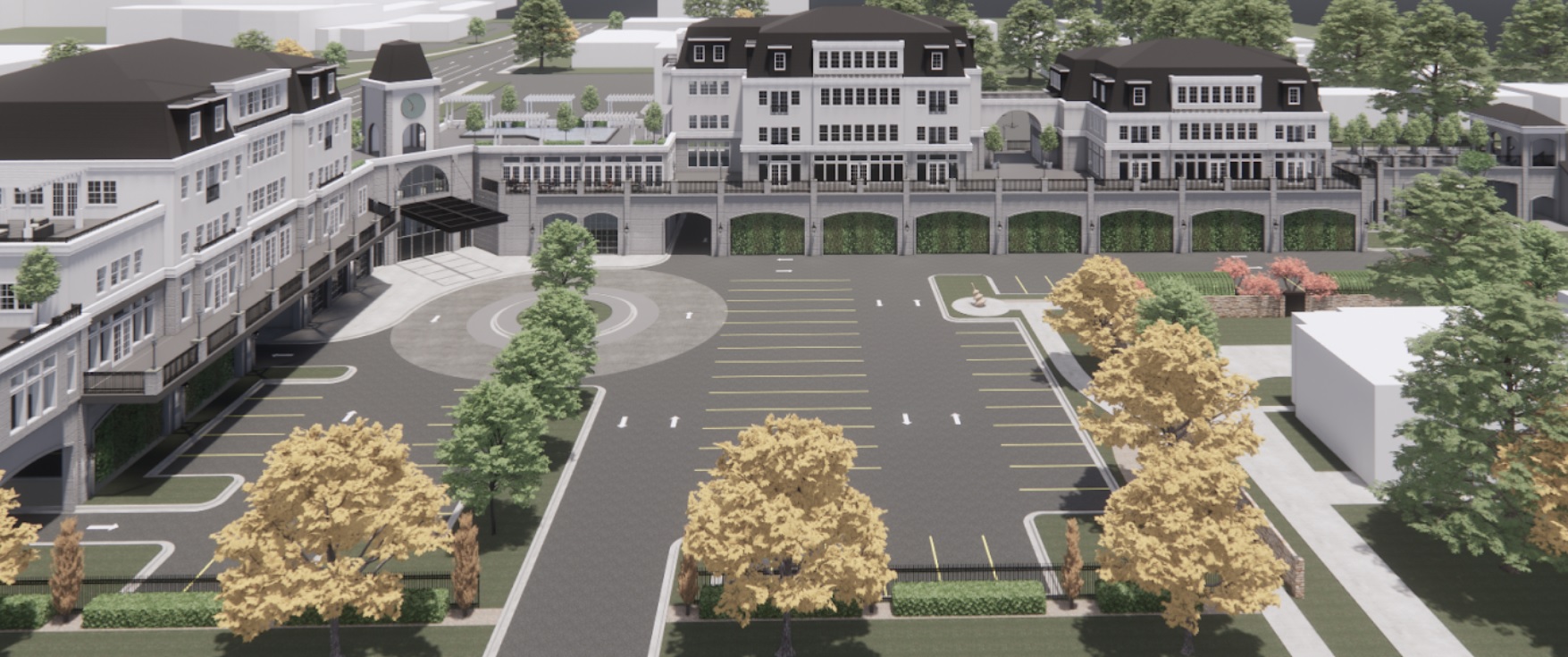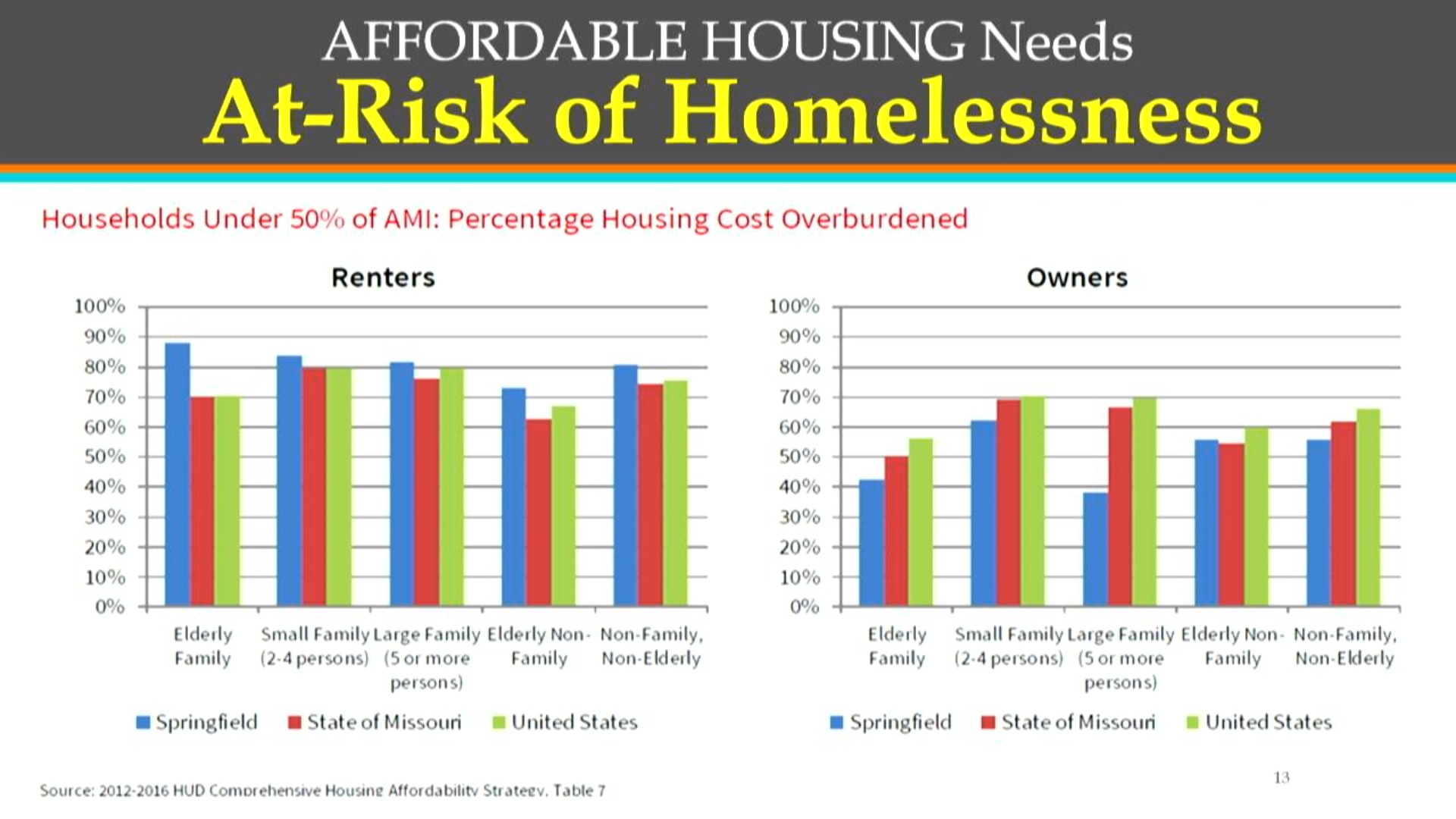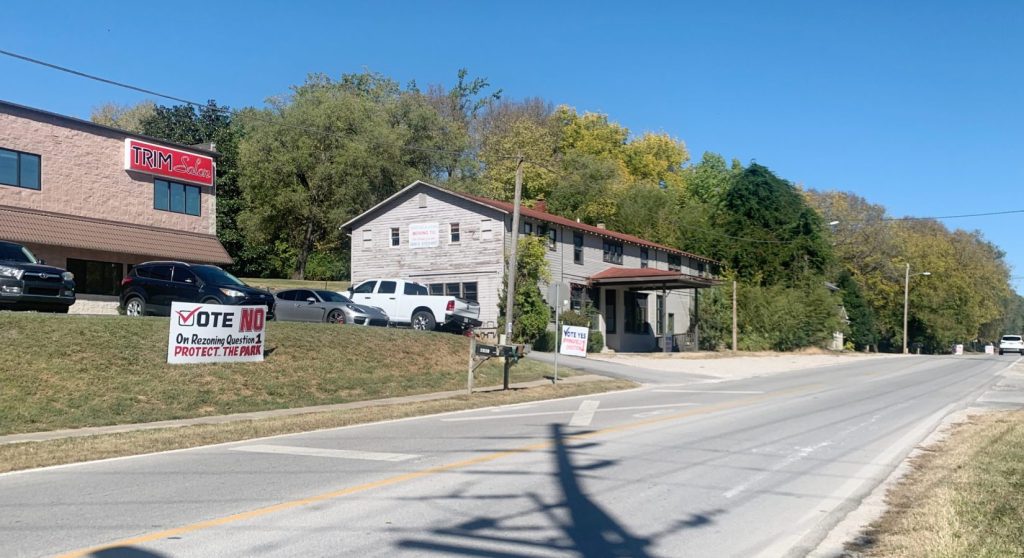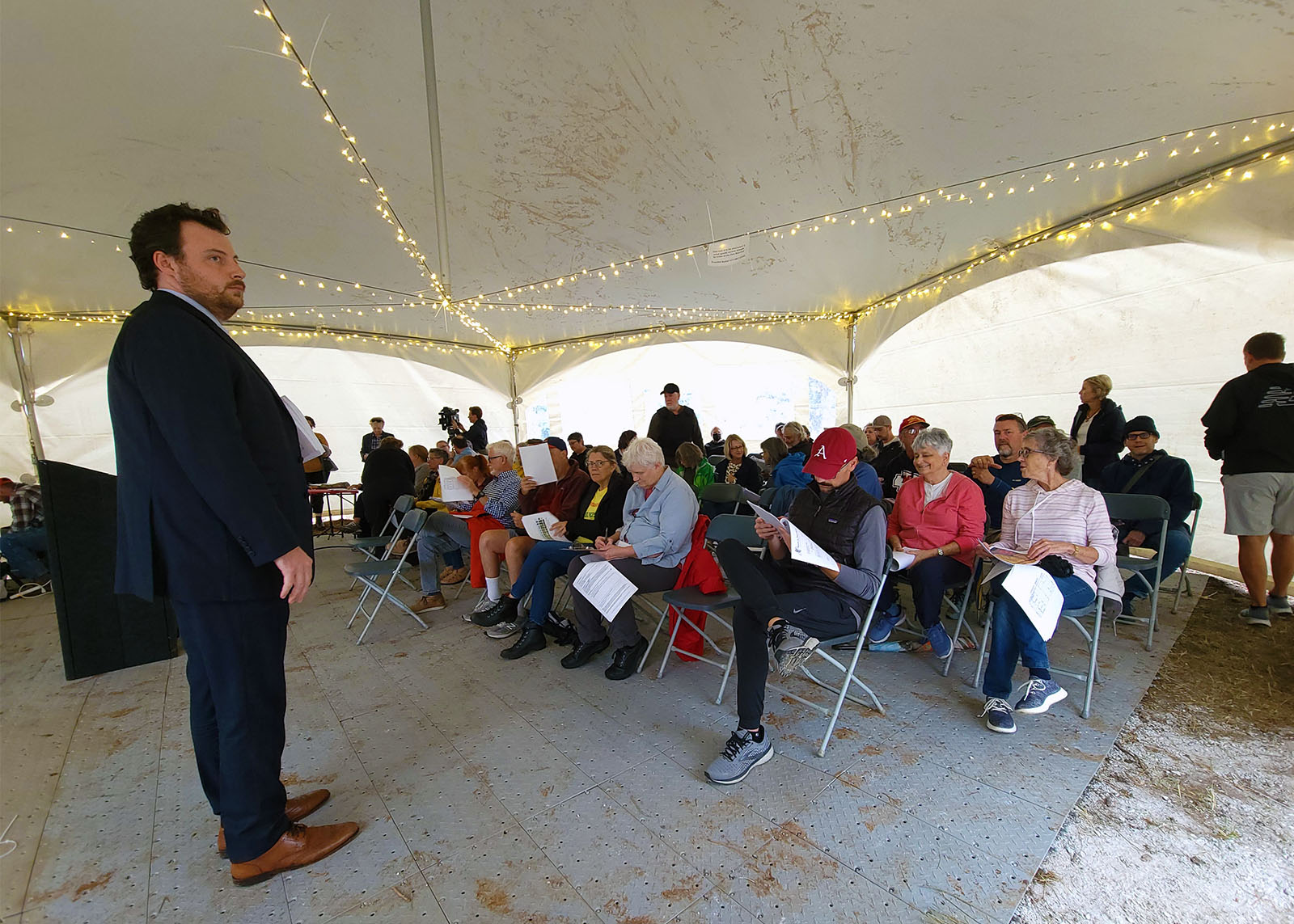At least one member of the Springfield City Council wants to hit the pause button on any rezoning in two neighborhoods ripe with controversy.
Councilman Craig Hosmer plans to introduce a resolution to put a temporary halt to rezoning property in University Heights and in Phelps Grove — effectively putting the spotlight on one major project proposal. University Heights is home to the dispute at the corner of Sunshine Street and National Avenue, where developers from BK&M (Be Kind and Merciful) razed a house and proposed a multi-use development with restaurants, stores, offices and apartments.
Hosmer said the proposal should be up for debate no later than Jan. 23. He is waiting for word from city staff members he asked to craft the resolution’s language.
“We’re just sort of starting the discussion on it, so I haven’t seen the language,” Hosmer said. “It depends on when they get it ready.”
Hosmer said a moratorium on development in the two neighborhoods would buy the City Council some time to make sure it isn’t making decisions that conflict with the long-term comprehensive plan for Springfield. He said it would allow the council to “get some input from the neighborhoods, get some input from city staff instead of doing these ad hoc developments wherever they want to go.”
In November, the City Council voted to enact Forward SGF, a comprehensive plan for growth and development for the next 20 years. At the same time, the BK&M case came up for lengthy public debates against heavy opposition from property owners in University Heights.
“We were in the process of doing the comprehensive plan,” Hosmer said. “With the modifications of the zoning ordinances, I think it would make some sense for us to have that understanding of what our long-term plan is.”
On Jan. 9, BK&M requested its case be removed from the Springfield Planning and Zoning Commission's agenda for a meeting Jan. 12, marking another delay for the developer.

Renter percentage motivates a closer look
Also in November 2022, the Springfield Department of Planning and Development announced it hired APD Urban Planning and Management to start a housing-needs assessment and a study of Springfield’s current housing conditions.
“We’re doing a housing study, and it just seems like before we keep tearing down more houses, maybe we should complete the housing study and have a pretty good understanding of what we need to do to reverse that trend of greater and greater dependence on rental property instead of home ownership,” Hosmer said.
Hosmer said he is motivated to delay action on any University Heights cases because of the high percentage of Springfieldians who rent their houses or apartments.
People who spend more than 30 percent of monthly earnings on rent and housing costs fall into an income category the U.S. Department of Housing and Urban Development considers to be statistically unstable and at the highest risk for homelessness. In Springfield that affects people living in 8,230 households.

A housing consultant calculated that an individual would need to earn at least $14.50 per hour and work 40 hours per week on a steady basis to afford to rent a one-bedroom apartment in Springfield and have 66 percent of their income for other expenses. If they made minimum wage, they would need to work a minimum of 56 hours per week to afford to pay a maximum of 33 percent of their income for housing.
According to the U.S. Census for 2020, only about 42 percent of the people who live in Springfield own their homes. The remaining 58 percent are renters.
“Our city is one of the highest cities in the country on the number of people who live in rental property, and we’ve got problems with poverty,” Hosmer said. “Home ownership is one of those things that gives people a chance to build some equity.
When people buy a home, Hosmer said, they shoulder a responsibility to protect their home.
“Those people made investments in their community, in their homes and in their neighborhoods,” Hosmer said. “I think you want neighborhoods that care about what’s going next door to them.”
Precedent in Galloway and other Springfield neighborhoods

Nov. 5, 2018, the Springfield City Council passed a resolution to create an administrative delay on rezoning or lot consolidation in the Galloway Village neighborhood for 270 days. Councilman Matthew Simpson was the bill sponsor.
At the time, Simpson said people were concerned about apartments going up in front of Sequiota Park.
“We needed to make changes to address the concerns when we could, and we did, and we need to have a comprehensive effort for the Lone Pine corridor, particularly the blight designation zone where development is encouraged with the tax abatement moving forward,” Simpson said at the time.
Simpson spoke of how the 2018 moratorium on rezoning property in Galloway Village would encourage concerned property owners to participate in comprehensive planning for the area.
The moratorium on rezoning expired Aug. 2, 2019. The resolution passed with an 8-0 vote, which included approval from present day council members Mike Schilling, Andrew Lear and Richard Ollis, along with Simpson, Hosmer and Mayor Ken McClure.
Flash forward more than three years. More than 70 percent of the 46,616 Springfield voters who cast ballots Nov. 8, 2022, voted against Springfield Question 1, a referendum question that would have rezoned 4.2 acres of land in the 3500 block of South Lone Pine Avenue. Developers Mitch and Amanda Jenkins of Elevation Enterprises sought change to a planned development zone, clearing the way for construction of a mixed-use project that would include retail and office spaces and about 100 apartments. The referendum zoning proposal met overwhelming defeat, with 32,862 voters saying, “No.”
A court case involving the Elevation Enterprises zoning dispute on Lone Pine Avenue may or may not proceed in the wake of the election. As of Jan. 9, 2023, Elevation Enterprises still owns the property in question opposite Lone Pine Avenue from Sequiota Park.
There have been other cases where Springfield city government officials have used administrative delays and/or development moratoriums to create opportunities for discussion and neighborhood planning. Hosmer’s own neighborhood, Rountree, had an administrative delay on development that expired in March 2018. The City Council also put a 180-day administrative delay on what is now the three-mile Grant Avenue Parkway zone in 2020.


